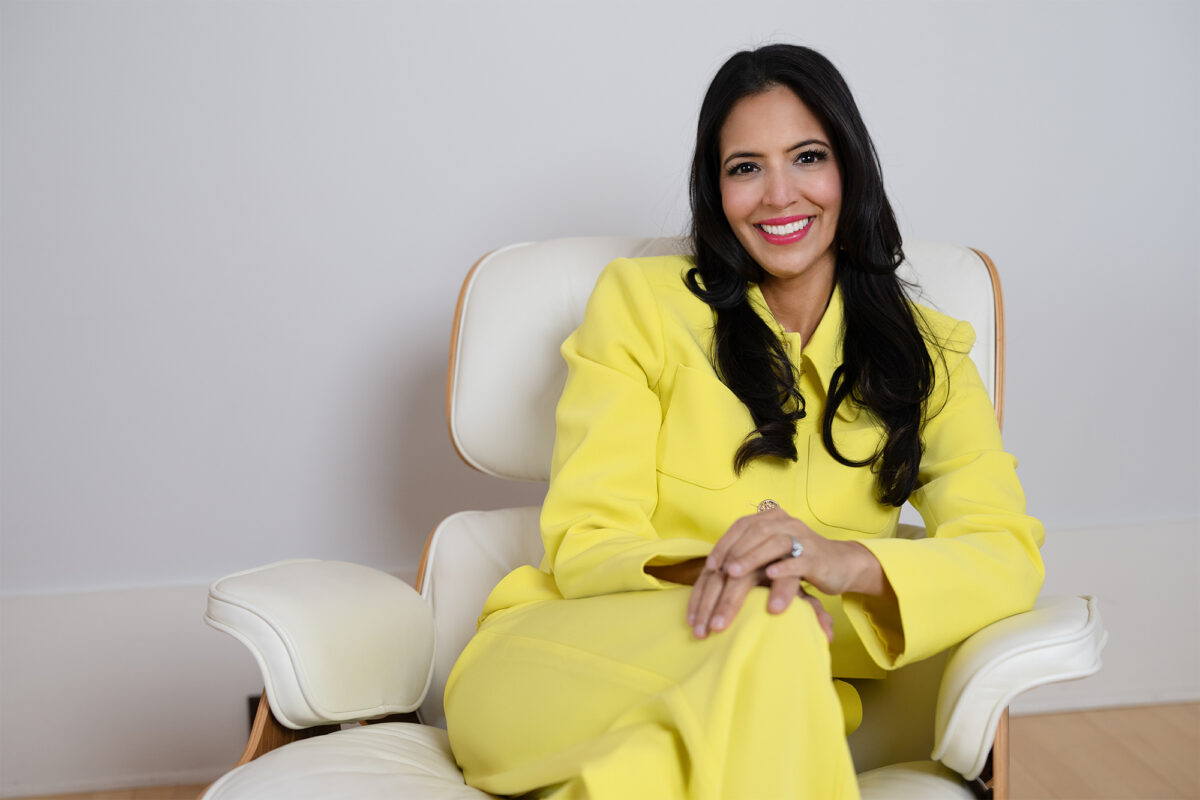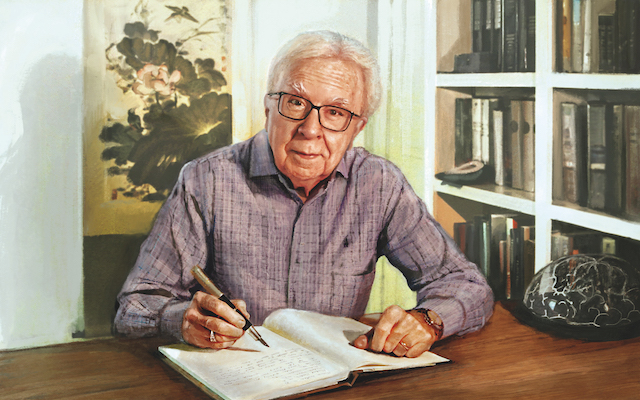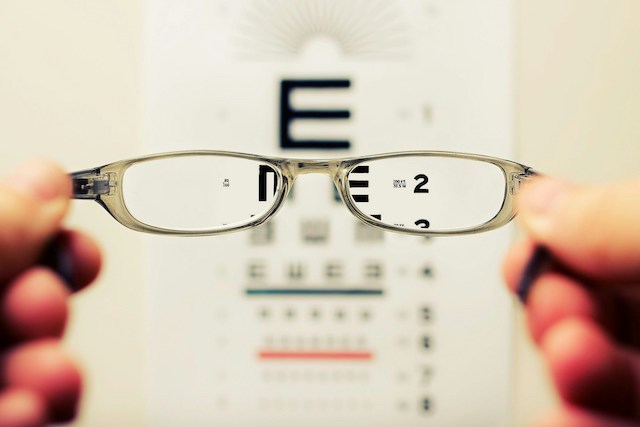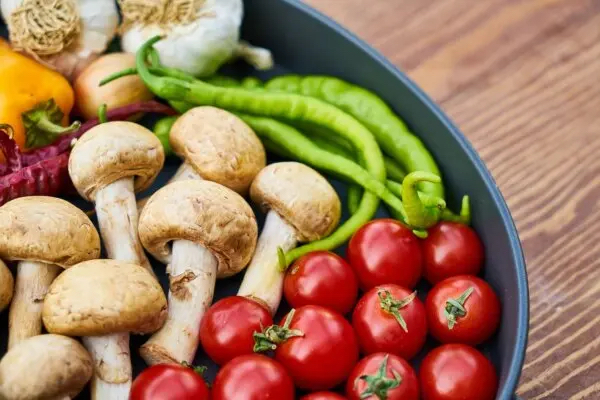When Vani Hari’s mother joined her father in America, the first food he introduced her to was a McDonald’s hamburger.
“He said, ‘If we’re going to live in America, we’re going to eat like Americans.’ And so that’s how we grew up,” Hari said.
Her father had left India to study in the United States, returned home for an arranged marriage, and then settled with his new bride in Charlotte, North Carolina. Hari and her older brother grew up on a blend of cultural fare and “American” food, as their parents tried to give them the best of both worlds.
“My mom knew how to make Indian food, but she didn’t have handed-down recipes from an American mother,” Hari said. So she relied on pre-made and packaged foods. Hari remembers Thanksgiving dinners from boxes and cans, and years of the same frozen Pepperidge Farm cake for her birthday. She gorged on candy, earning her the nickname “candy queen.” As she grew older, she shunned her mother’s homemade Indian meals, opting for junk food and Burger King.
Hari also grew up struggling with common health issues—severe eczema, asthma, and allergies. By her 20s, she was on eight prescription medications. Fueling a high-pressure corporate job with fast food sandwiches and sugary snacks, she was overweight and wore exhaustion on a puffy face.
Now, Hari knows better. Her younger self is unrecognizable from the powerhouse she is today: an investigative food activist, cookbook writer, and fit mom of two, dedicated to bringing healthy change and transparency to the American food industry. Her high-energy presence attracts supporters to rallies just as her popular Food Babe blog has been gaining ardent followers since 2011. Lately, she’s emerged as a powerful voice of the Make America Healthy Again movement, led by former presidential candidate and now Department of Health and Human Services (HHS) head Robert F. Kennedy.
Hari’s mission is inspiring a revolution of Americans with the food knowledge to take back control of their health—just as she did.

A Health Scare Turned Into Hope
Hari’s transformative journey to vibrant health began on a hospital bed: recovering from an emergency appendectomy at age 23.
“Everyone my age was going out and going to parties, and I was sitting in a hospital room recovering from getting my stomach cut open. I just kind of had enough,” she said. Tired of never feeling well, she resolved to make her health a priority.
Though she lacked a background in health or dietetics, Hari dove into research and armed herself with books, eager to learn about nutrition—and whether her diet was behind her health problems. She quickly built a case against ultra-processed foods.
“I found out my body was super inflamed because of what I was eating,” Hari said.
“One of the books I was reading has this concept that the majority of grocery foods in a package or [that are] processed are dead. They’re not alive. Well, that’s how I felt for most of my life. So I decided to eat more real, live foods that came from nature, that hadn’t been adulterated by the food industry.”
She visited local farmers markets and sought out fresh, whole ingredients. She ditched the fast food and the candy. Soon, her health began to change.
Hari lost the 30 pounds she’d gained in her early 20s, plus five extra. Her energy soared to new highs. Her skin and breathing issues faded, and she didn’t need to refill her prescriptions. Family and friends noticed the “candy queen” wasn’t eating candy anymore, and they commented that she looked like a different person.
They convinced Hari to share how she did it, and her blog, FoodBabe.com, was born.
The Food Babe and Her Army
On the blog, Hari shared stories about her journey and new lifestyle, including healthy recipes and food recommendations.
She also wrote about her investigations into the American food industry and the harmful ingredients hiding in our food supply.
“I used my newfound inspiration for living a healthy life to drive my energy into researching the causes of chronic disease. It all came back to our food,” she said.
The leading cause of mortality in the United States is diet-related chronic disease. Diet is blamed for new diseases like inflammatory bowel disease, irritable bowel syndrome, Type 2 diabetes, and obesity. One in five American children is obese, and rates of Type 2 diabetes and nonalcoholic fatty liver disease are rising rapidly in young generations. These modern health problems have disproportionately affected industrialized countries with diets high in ultra-processed food.
Ultra-processed foods are made in labs, often with chemically altered food extracts and additives that make the food hyper-palatable—difficult to stop eating—and extend their shelf life. Additives include artificial flavors, colors, emulsifiers, and preservatives.
“I realized that I was eating chemicals that were not there to improve the nutrition of my body, or make me healthy, or make me live a long, beautiful life. [They] were invented to improve the bottom line of the food industry, and actually were detrimental to my health,” Hari said.
She also realized there was a lack of transparency around these ingredients that made it hard for consumers to make truly informed food choices. When she investigated healthful claims on the label of her favorite yogurt brand, the company responded by removing misleading marketing.
“This led me more into an activism role, as I saw that we had the ability to influence companies to change,” she said.
The more she called out major food companies for using unhealthy chemical ingredients, the more her popularity grew. Her blog has since grown to more than 4 million subscribers, whom Hari calls the Food Babe Army.
“I started to realize I had this amazing community that not only cared about their own health, but also wanted to hold these companies accountable,” she said. “I realized that I had the ability to get people’s attention on these issues in a way that could really change the food industry.”
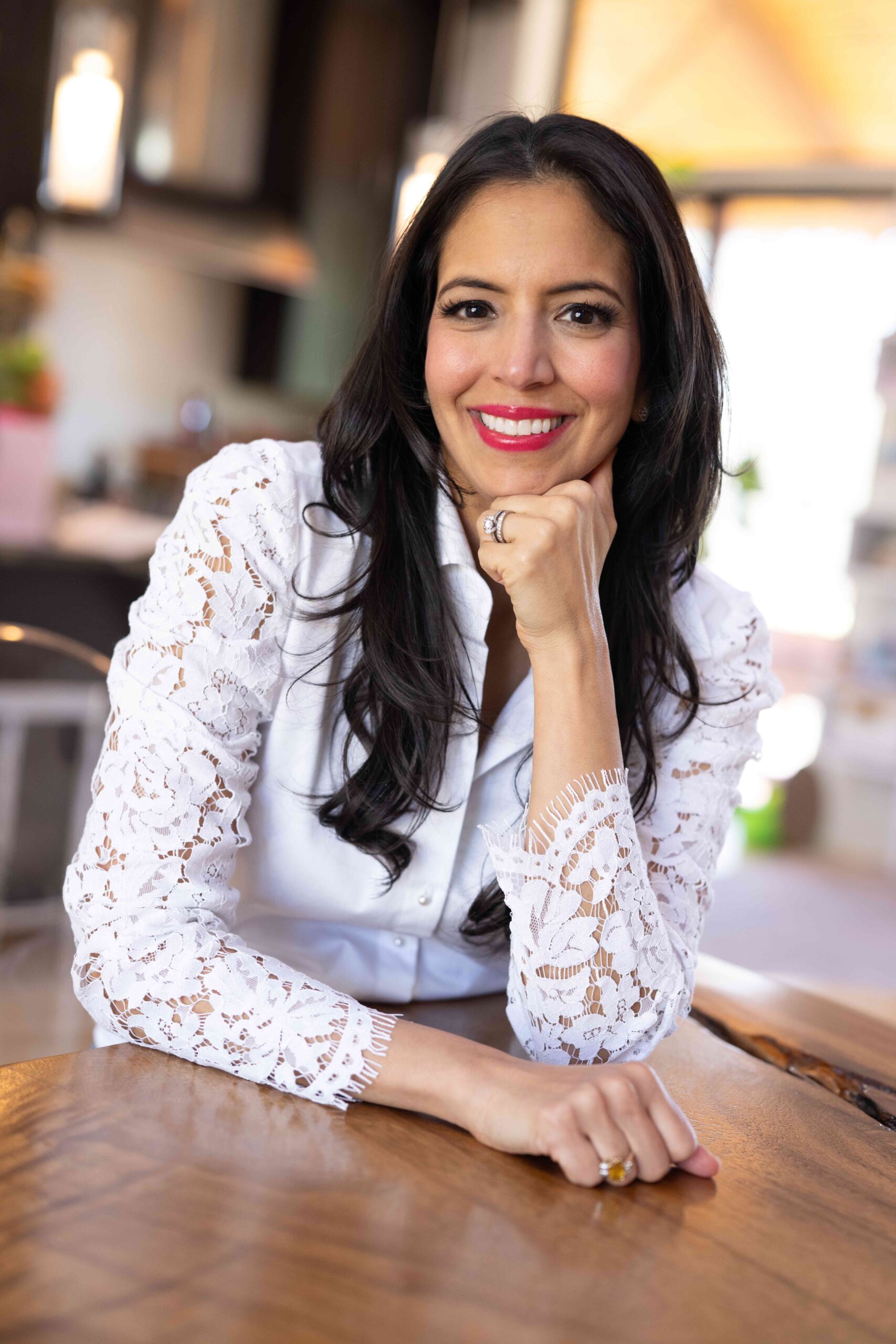
It’s All Personal
Some of Hari’s most popular investigations compare two versions of the same American-manufactured food product: the version sold in the United States, and the version sold overseas. The latter often has a noticeably different, shorter ingredient list.
One of her first investigations was a personal favorite food of hers: Quaker Oats Strawberries and Cream instant oatmeal. She discovered that while the UK version used real strawberries, the U.S. version instead contained dried apple bits, artificially flavored and colored with chemically-derived Red 40.
“We’re tired of this double standard that so many American food companies are participating in by selling safer ingredients to other countries,” Hari said. Other countries have stricter regulations for food additives and, in some cases, require warning labels about ingredients’ associations with health risks. Rather than add the label, American food companies sell reformulated products in overseas markets.
Quaker has since changed the U.S. product to use dried strawberries and natural dye, citing consumer demand for simpler, shorter ingredient lists.
Compelled to action, Hari began launching petitions asking food companies to remove chemical ingredients from their products. She was inspired by fellow food blogger Bettina Elias Siegel, who petitioned to remove “pink slime,” a processed beef byproduct used as a cheap filler, from school lunches.
During a campaign against Subway to stop using azodicarbonamide, a bleaching and dough conditioning chemical also found in yoga mats and shoe soles, Hari filmed a video of herself chewing on a yoga mat. Her petition collected more than 50,000 signatures. Not only did Subway remove the chemical from its bread, but eventually, others like McDonald’s, Wendy’s, and White Castle did, too.
“When one product, one company changes, it does inspire the rest of the industry to start changing as well,” Hari said.
Her advocacy is inspired by situations in her personal life, such as seeing a coworker eat Subway for lunch every day, or realizing her husband’s beer didn’t have an ingredient label—and was the only item in her refrigerator that didn’t.
“Every single thing has been about a personal situation or story that has led me to say, ‘Enough is enough. This company needs to be held accountable,’” she said.
Hari credits the Food Babe Army with helping influence some of the largest food corporations to make positive changes, including Chick-fil-A, Kraft, Chipotle, General Mills, Panera Bread, Anheuser-Busch, and Starbucks.
Even when a company is initially non-responsive, she persists. Petitions that aren’t recognized turn into boycotts strong enough to affect company sales.
However, the impact seeps much deeper. Hari noted the power of a single campaign to spread greater public awareness about the link between diet and disease.
“Taking a single product or a single ingredient, and talking about it in a way that wakes people up, that leads to other changes in their diet. That leads to other changes in their lifestyle,” she said.
Hari’s advocacy and education go hand in hand. “I really want people to know what they’re eating so they can make good, informed decisions,” she said. She’s written two books, “The Food Babe Way” and “Feeding You Lies,” and two cookbooks, “Food Babe Kitchen” and “Food Babe Family,” to help empower families to make changes in their own shopping carts and kitchens.

Onto a Bigger Stage
Hari attempted large-scale, governmental-level change early on. She was a Democratic delegate for Barack Obama during both of his presidential campaigns. But when promises to address food chemicals went unfulfilled, she became jaded about the possibility for political change.
However, Hari said the country’s chronic disease crisis has been a big wake up call. Recent public awakening and growing momentum have finally forced the bipartisan issue into the government arena.
She’s been tapped to help elected officials and non-profit organizations from 30 states write bills to ban various chemical ingredients. She’s also uniquely positioned to inspire reform at a higher level.
In September 2024, Hari was invited to participate in a U.S. Senate roundtable discussion on chronic disease. She described it as one of the most important days of her life. Later, Kennedy cited information from Hari’s presentation in his Congressional hearings for his HHS appointment: how McDonald’s French fries differ across the pond. French fries in the UK are made with potatoes, oil, dextrose, and salt; while in the United States, they have more than 10 ingredients, including hydrogenated soybean oil, the antifoaming agent dimethylpolysiloxane, and the preservative TBHQ.
“I’ve never had a politician take my voice like that and bring it to the highest levels of government. I’m extremely hopeful because of that,” Hari said. “It’s the first time we’ve had this level of awareness around chemicals in food at this level of leadership.”
The momentum since has illustrated to her that regulatory change may be possible, ending the game of “whack-a-mole” where change comes slowly, with one ingredient and one company at a time.
“Both sides of the political spectrum are engaged, and it’s just so good for the country, and it’s so beautiful,” Hari said. “I hope when we look back, we see this was the turning point, and we reversed chronic disease.”

Raising Her Voice
Back in 2017, Hari launched her own company, Truvani, making protein powders and bars without synthetic ingredients. She admits that one reason she did so was to step back from the risky role of activism and focus on being a mother. However, she quickly realized that being a mom only fueled her passion.
“I want to make it easier for every mom out there to feed her kids and not have to worry about eating these chemicals,” she said. “I personally know how hard it is to avoid processed ingredients. When it comes to artificial food dyes, I’d love to see them removed from our food supply in my lifetime.”
She’s had to swallow self-doubt and defeat imposter syndrome to step foot in Washington and speak up. But she knows what it takes to overcome insecurities to be in the limelight. When she launched Food Babe, she couldn’t bear to use her own photograph, choosing instead to publish clip art for the first two years. “I didn’t feel like a ‘food babe’ for most of my life,” she said.
Yet she’s driven by a sense of responsibility. Her destiny is written in her name.
In Hindi, Vani means “eloquent with words” or “voice.” She continues to express the voice of many, whether from her blog, through megaphones on corporate lawns, or into a microphone on Capitol Hill.
Each time her platform grows, she’s had to ask if she wants to continue to take the risk of advocacy.
“I kept coming back to ‘yes,’ because I was like, ‘How else are we going to change the world, if I don’t use my voice in this way?’” she said. “If you don’t follow your calling, it just keeps calling.”
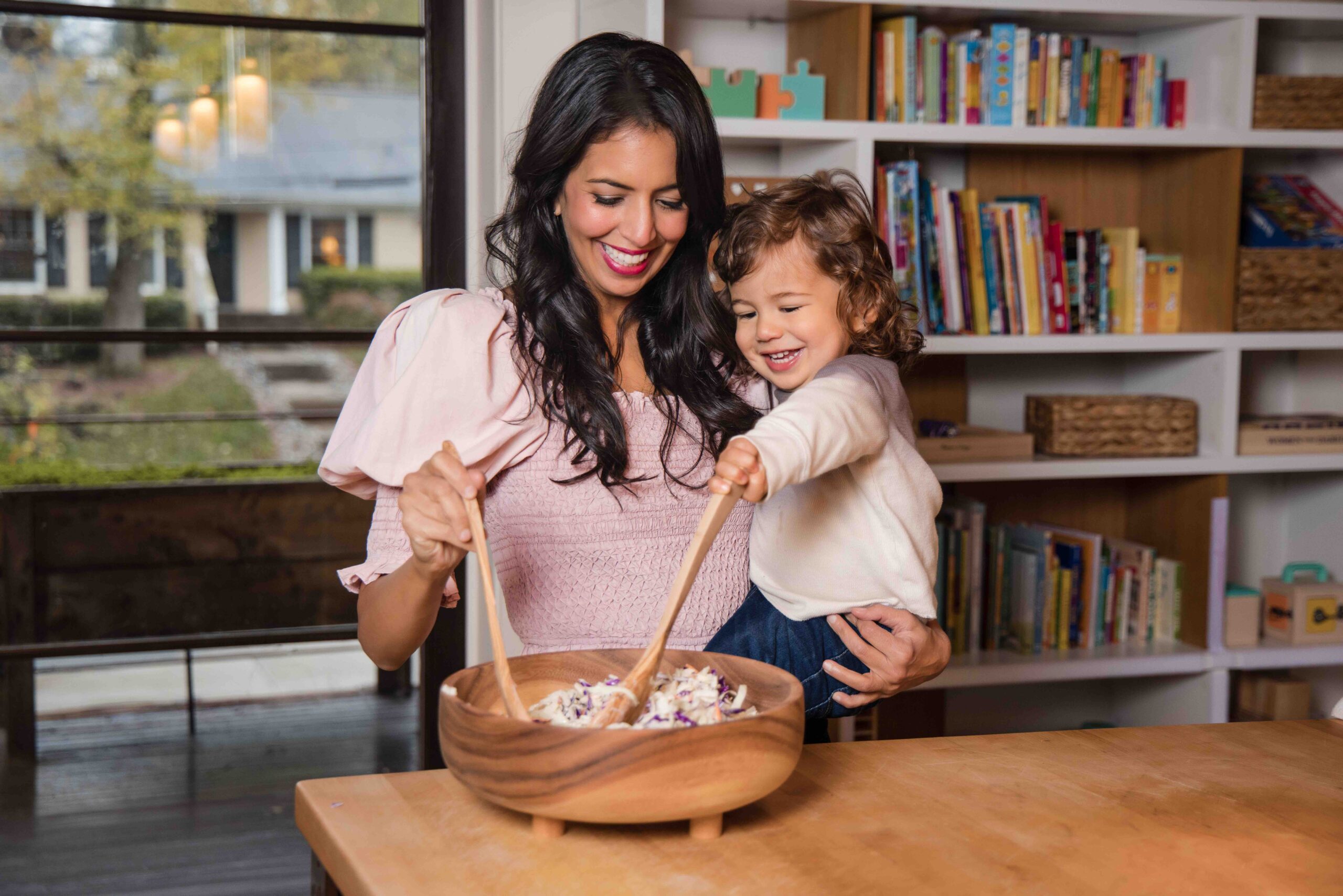
How to Reclaim Control of Your Health, the Food Babe Way
The Food Babe way isn’t about dieting or deprivation. Former “candy queen” Vani Hari wants others to know that food should be enjoyed. Her blog, cookbooks, and social media offer countless examples for avoiding chemical ingredients and opting for healthier alternatives that are just as satisfying and delicious. She shared 5 steps for getting started.
Start Asking Questions
Anyone can use Hari’s “three-question detox” to cut back on processed foods and chemical ingredients. “I think this is even better than trying to remove a food group,” said Hari.
Every time you prepare to eat a meal, ask yourself:
- What are the ingredients?
- Are these ingredients nutritious?
- Where did these ingredients come from?
“If you don’t know the answers and you try to find out, you’ll learn more about the food system and what you’re eating, and automatically, you’ll start to make better choices,” Hari said. “You don’t have to have a rocket science degree to learn how to eat.”
Buy Organic, Whole Foods
When possible, buy and eat whole foods that are label-free and organic, such as produce, meat, and cheese. Hari says it’s especially important to buy organic dairy because of the risk of exposure to antibiotics and growth hormones.
Use Environmental Working Group’s “Clean 15” and “Dirty Dozen” liststo help decide which produce to prioritize buying organic.
Read the Ingredient Label
“The most important label on any product is the ingredient label,” said Hari. Labels like “low-calorie” or “gluten-free” won’t tell you whether the food is real or really healthy. The ingredient list is where you’ll learn whether something is made from whole foods or filled with man-made chemicals.
Start by focusing on single-ingredient products on store shelves, such as packaged rice, quinoa, oatmeal, and beans. There are also plenty of processed, packaged foods made with real ingredients that make healthy eating more convenient—think of a jarred tomato sauce made with organic tomatoes, garlic, and seasonings.
The processed foods to avoid are those that contain little to no natural ingredients, or are filled with additives—like tomato sauce with added sugar and preservatives. Compare brands to find the best option.
Hari shares a list of common additives to avoid at FoodBabe.com/ingredients-to-avoid. But you don’t need to commit every name to memory to make smart shopping choices.
“If a product is made with real food, you won’t need to question it, because you will immediately recognize the ingredients,” Hari said. “If you don’t know what an ingredient is on a label, or how it can affect your health, look for a safer alternative made with real food. I believe that if every American took this step, the health of our nation would completely turn around.”
Kick Refined Sugar
Avoiding refined sugar has two benefits: You won’t be tempted to overeat desserts, and you’ll fill up on nutritious foods, leaving less room for empty calories. “Eventually, you’ll develop a distaste for refined sugar, and your desire for ultimate nutrition will become instinctive,” Hari said.
She warned that refined sugar can be called a dozen different names on a label. Common ones include sugar, corn syrup, high fructose corn syrup, brown sugar, sucrose, dextrose, invert sugar, and rice syrup.
In her book “Feeding You Lies,” Hari shared tips for fighting sugar cravings and transitioning to a lifestyle with less sugar:
- Eat at regular times every day.
- Balance your meals with protein, greens, and healthy fats.
- Flavor foods with naturally sweet spices, such as cinnamon.
- Drink adequate water, as dehydration can be mistaken for a sugar craving.
- Exercise to take your mind off cravings and boost feel-good endorphins.
- Enjoy fermented foods such as yogurt, kimchi, and sauerkraut to offset cravings.
- Eat fresh fruit to satisfy a sugar craving.
- Avoid artificial sugar substitutes; instead, use natural sweeteners such as real maple syrup, raw honey, coconut sugar, date sugar, or dates.
Make It Yourself
Hari credits cooking with saving her life. She’s on a mission to teach others how to choose the best ingredients to make home-cooked meals simply and affordably. Her two cookbooks walk readers through healthier ways to make recipes like tacos, waffles, and luscious lemon bars, plus copycat versions of store-bought and fast food favorites. She shared three recipes with us.
8 Smart Swaps
Hari frequently shares favorite healthy store-bought alternatives to commonly craved processed foods on her Instagram page. Here are a few:
- Chips: Instead of potato chips fried in refined, inflammatory corn and soybean oils, choose chips cooked in avocado oil or coconut oil, like Boulder Canyon or Jackson’s. For tortilla chips, try Sprouts brand organic tortilla chips made with olive oil.
- Soda: Substitute your fizzy drink filled with high fructose corn syrup, caramel color, and artificial flavors with plain sparkling water flavored with sliced lemon, orange, and cucumber.
- Cereal: Instead of cereals packed with refined grains, sugar, and preservatives, choose organic, nutrient-dense brands like Lovebird, or eat plain steel-cut oatmeal, made overnight in a Crock-Pot.
- Fruit Snacks: Instead of gummies made with dyes, refined sugar, and artificial flavors, try dried organic fruit or snacks made with just fruit, like the Soley brand.
- Chocolate Chip Cookies: Instead of cookies made with refined sugar and flour, choose more natural brands like Simple Mills or Skout Organics.
- Brownies: Rather than indulging in store-bought brownies usually made with refined flour and oils and man-made emulsifiers, try the organic chocolate Truvani bar.
- Ice Cream: Since most ice cream is made from conventional dairy, substitute it with an organic coconut milk ice cream such as Cosmic Bliss, or Straus made with grass-fed milk and cream.
- Candy Bars: Instead of chocolate filled with artificial emulsifiers and flavors, make Hari’s 8-Minute Candy Bar (recipe at FoodBabe.com) with organic Hu Chocolate Gems, or snack on Hu’s chocolate bars.
Snack Smarter
Hari frequently shares her favorite healthier, store-bought alternatives to commonly craved processed foods on her Instagram page. Here are a few:
- Boulder Canyon Olive Oil Kettle Cooked Potato Chips
- Lovebird Cereal
- Solely Organic Organic Whole Fruit Gummies
- Simple Mills Crunchy Chocolate Chip Cookies
- Truvani The Only Bar (Chocolate Brownie)
- Straus Organic Ice Cream
- Hu Chocolate Bars
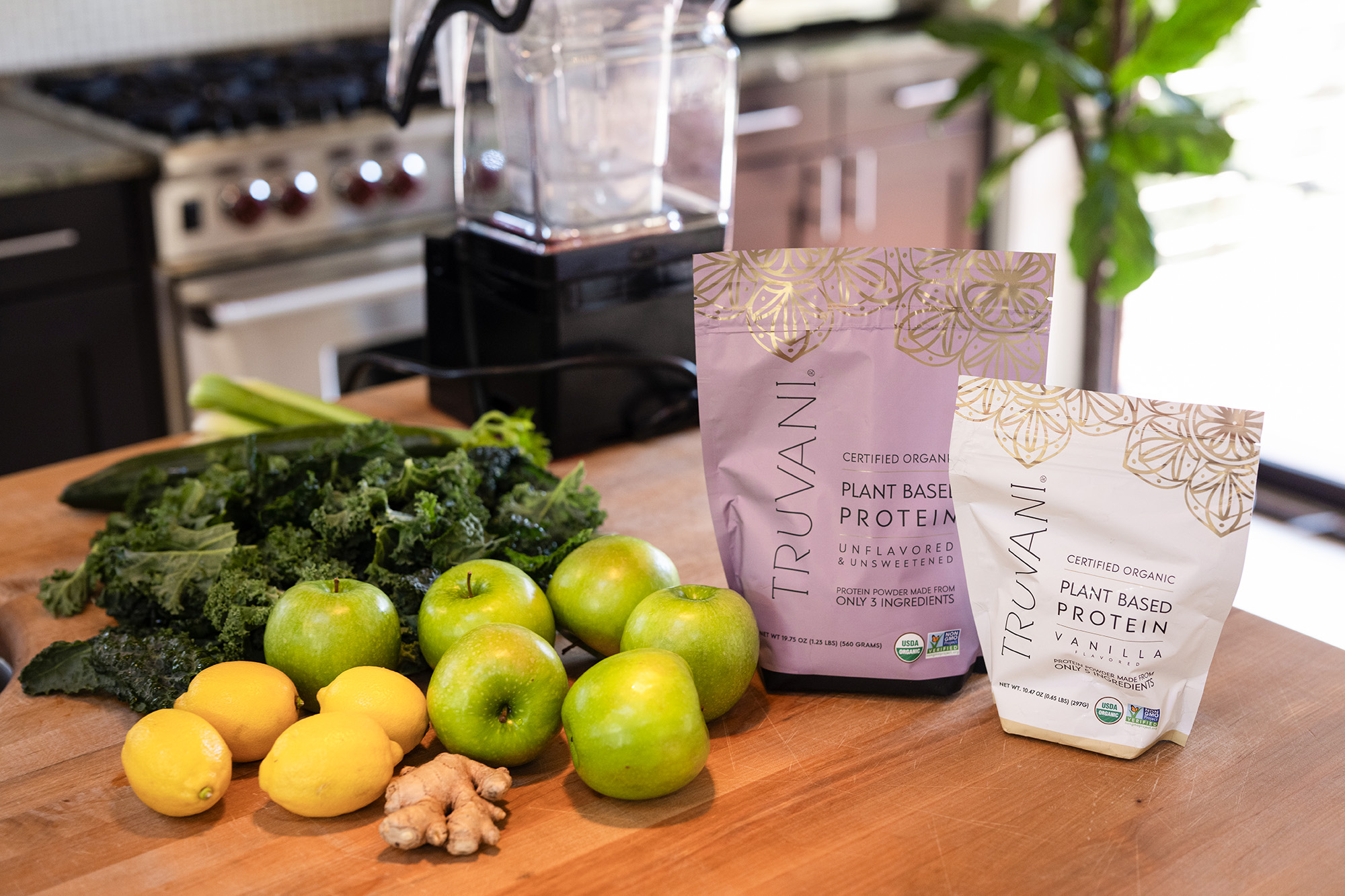
Raising Healthy Kids on Real Foods
The Food Babe way isn’t just for grownups. As a mom of two young children, Hari shares three strategies that have worked for her:
- Keep junk food out of the house. “That’s 90 percent of the battle,” Hari said.
- Mix up what you eat. “We don’t eat the same vegetables [or] fruits every day. That’s helped my kids adapt to real food, because they can eat 10 different vegetables, 10 different fruits,” Hari said.
Processed food, engineered to taste the same every time, “actually makes your child more picky,” she added. Real food naturally offers variety—a blueberry may be more sour or have a different texture, for instance—creating interest and curiosity at mealtime, and training kids’ ability to handle new foods. - Try growing some of your own food. Getting children involved in the process makes them more interested and willing to try new foods.
RECIPE: HARI SHAKE
RECIPE: RAINBOW POTATO FRIES
RECIPE: MEXICAN-STYLE BAKED ZUCCHINI BOATS
From May Issue, Volume V

